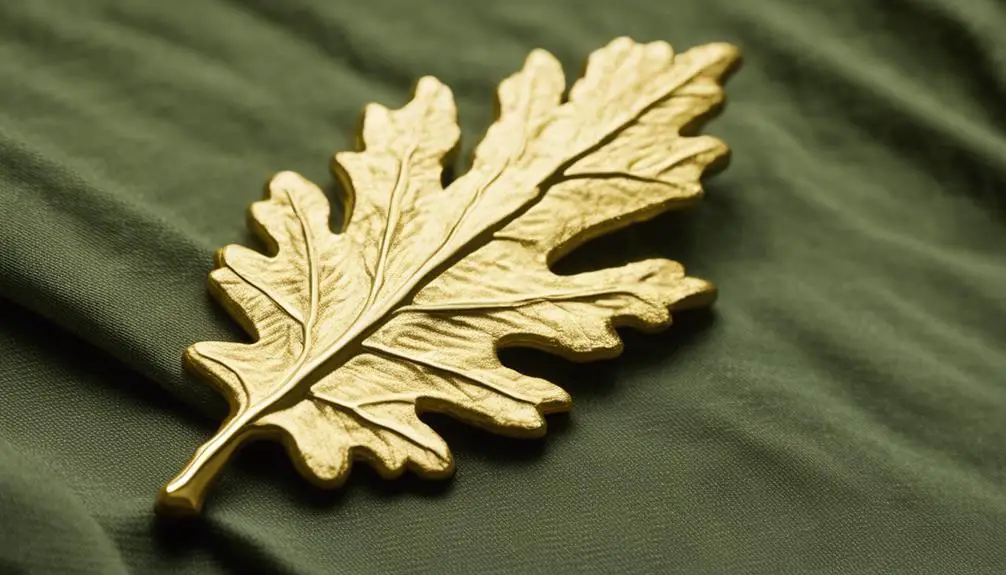You've heard "LT" or "El-Tee" used to refer to a lieutenant, but where did this slang originate? The term "LT" is an abbreviation of "lieutenant," but "El-Tee" has taken on a life of its own, particularly in popular culture. Artists reference "El-Tee" in music, and it's even appeared in internet memes. But what drives the use of these colloquialisms in high-stress military environments? Effective communication is key in these settings, and verbal cues often take precedence over written communication. As you explore the world of military slang, you'll uncover the intricate dynamics of communication, camaraderie, and hierarchy within the military ranks.
Origins of the Term "LT"
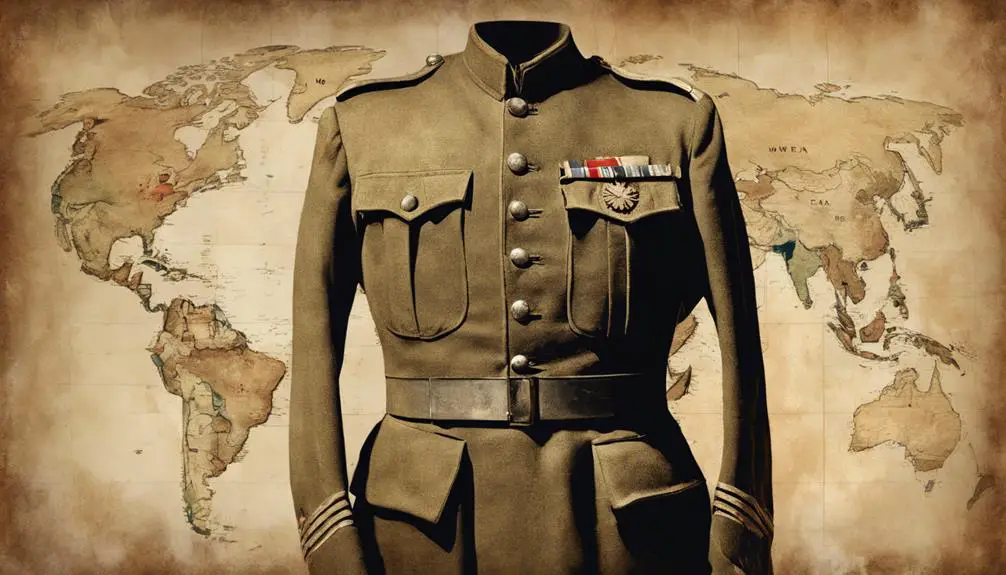
Frequently, when delving into the world of military slang, you'll stumble upon the abbreviation 'LT,' which is widely used to refer to a lieutenant, but have you ever wondered where this term originated from? In the military, rank insignia play a vital role in identifying an officer's position within the officer hierarchy. A lieutenant, being a junior officer rank, is typically denoted by specific insignia, such as a single silver or gold bar, depending on the country and branch of service. The abbreviation 'LT' is a shortened form of the word 'lieutenant,' which is derived from the French 'lieu tenant,' meaning 'place holder' or 'deputy.' This term was initially used to describe a deputy or assistant to a higher-ranking officer. Over time, the abbreviation 'LT' became a widely accepted term in military slang to refer to a lieutenant, making it an integral part of the military's linguistic culture.
Historical Roots of Military Slang
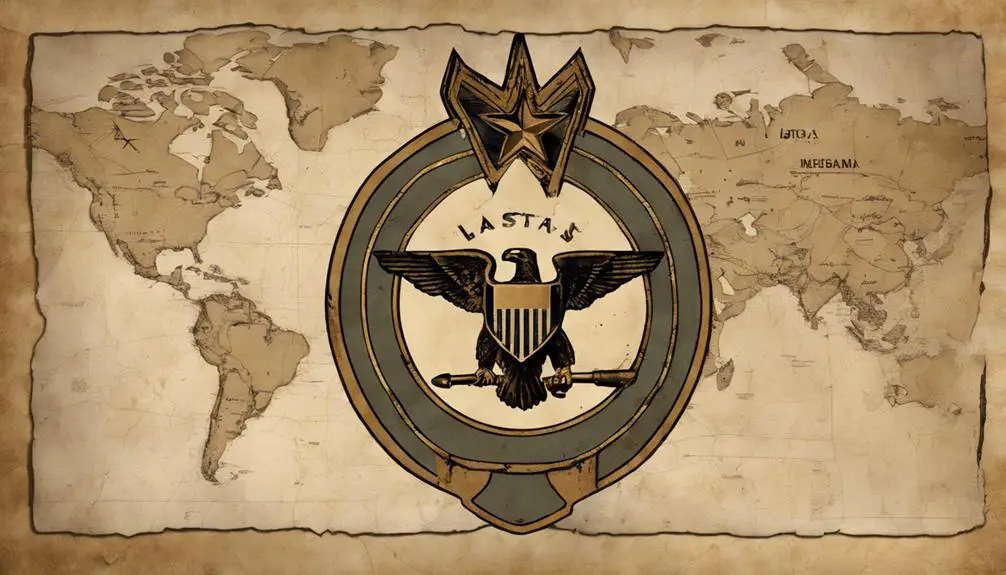
Delving into the historical roots of military slang, you'll discover that the use of abbreviations, acronyms, and colloquialisms has been a hallmark of military communication for centuries. Military lingo in ancient civilizations, such as the Greeks and Romans, was used to convey complex information quickly and efficiently. For instance, the Greeks used abbreviations to signify military ranks, while the Romans employed slang to describe military tactics.
The etymology of slang in naval warfare is particularly fascinating. In the 17th and 18th centuries, sailors used colloquialisms to communicate quickly and discreetly, often to avoid detection by enemy vessels. This unique dialect, known as "naval cant," consisted of abbreviations, acronyms, and slang terms that were unintelligible to outsiders.
As you explore the historical roots of military slang, you'll find that it's not just a modern phenomenon. Rather, it's a tradition that dates back thousands of years, with each era and branch of the military contributing to the rich tapestry of military lingo. By examining the historical context of military slang, you'll gain a deeper appreciation for the complexities of military communication.
The Rise of El-Tee in Pop Culture
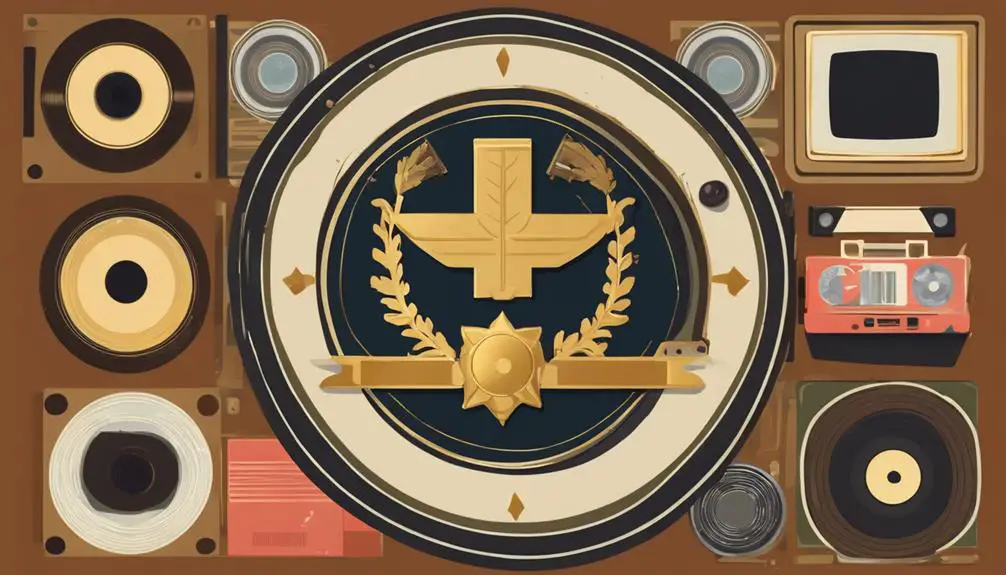
In the world of popular culture, you've likely encountered the term 'El-Tee' as a colloquialism for Lieutenant, but have you ever paused to ponder how this slang term made its way into mainstream media? The rise of El-Tee in pop culture can be attributed to its increasing presence in music, particularly in hip-hop and rap. Artists like J. Cole and Joey Bada$$ have referenced El-Tee in their lyrics, exposing the term to a wider audience. This musical nod to military slang has contributed to its widespread recognition and normalization in popular culture.
Beyond music, El-Tee has also become a staple in internet memes. Online communities and social media platforms have adopted the term, often using it humorously or ironically. Memes featuring El-Tee have become a common sight, further solidifying its place in the cultural lexicon. The proliferation of El-Tee in both music and memes has cemented its status as a recognizable and relatable term, transcending its military origins to become a staple of modern pop culture.
Communication in High-Stress Environments
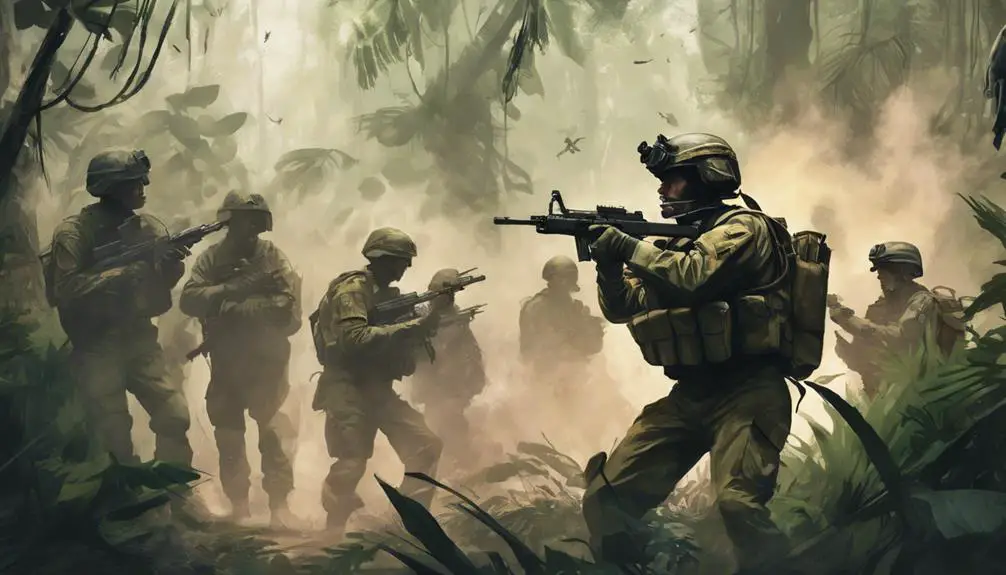
When you're relying on your team for survival in high-stress environments, effective communication becomes the lifeline that keeps everyone alive. It's vital to convey critical information quickly and accurately, guaranteeing that each team member is on the same page. Clear communication strategies are indispensable in these situations, as they help to minimize confusion and reduce the risk of misunderstandings.
In high-stress environments, verbal cues are often preferred over written communication due to the urgency and time-sensitive nature of the situation. Battlefield vocal cues, such as 'cover me' or 'fall back,' are designed to be concise and easily understood, even in the midst of chaos. These cues are rehearsed and ingrained in training, allowing team members to react instinctively and respond accordingly.
Effective communication in high-stress environments demands a deep understanding of the situation, the team's capabilities, and the mission objectives. By using clear and concise language, you can ensure that your team is well-coordinated and working together seamlessly, even in the most intense situations.
Military Jargon and Camaraderie
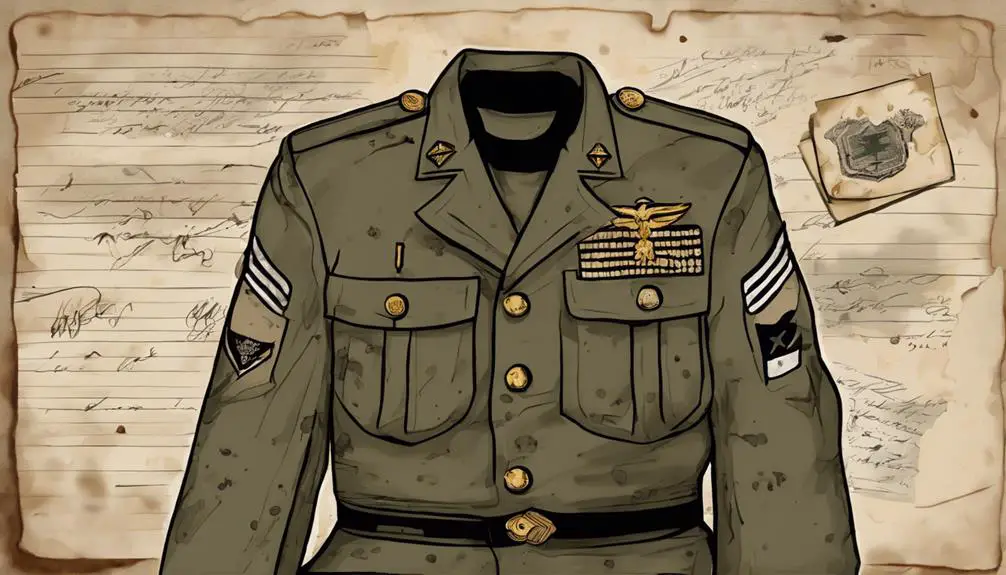
As you navigate the complex web of military relationships, you'll find that jargon serves as a secret handshake, instantly conveying your affiliation and fostering a sense of camaraderie among comrades. This unique language creates a sense of belonging, distinguishing insiders from outsiders and facilitating bonding rituals that strengthen unit cohesion. By sharing a common lexicon, service members can swiftly communicate complex ideas, emphasizing efficiency in high-pressure situations. Additionally, military jargon reinforces esprit de corps, the collective spirit that defines a unit's identity and motivates its members. As you learn and employ this specialized vocabulary, you'll notice how it reinforces camaraderie, establishing a shared understanding that transcends rank and branch. By embracing military jargon, you'll become an integral part of a community bound by a shared language and a common purpose.
The Psychology of Slang in the Ranks
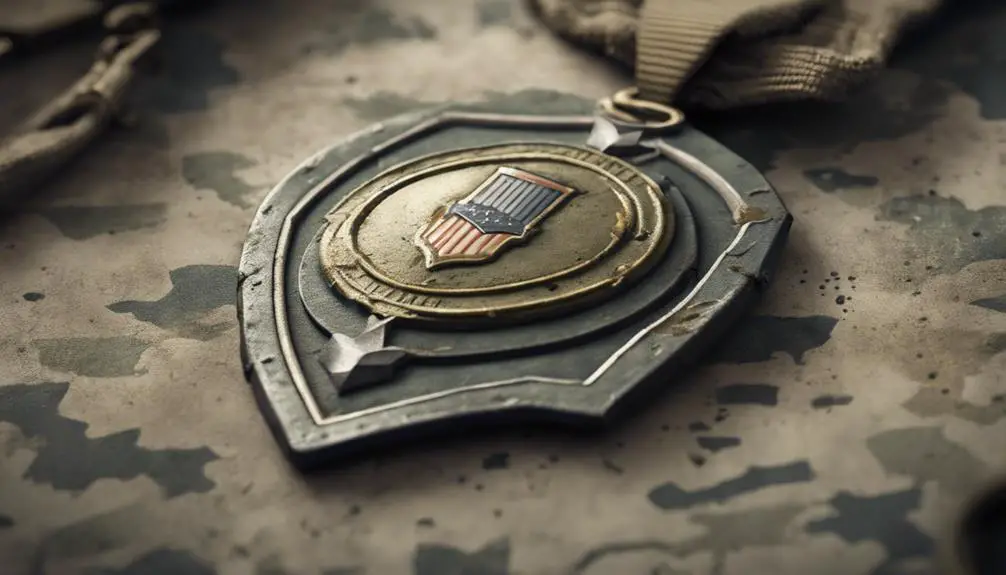
What drives service members to adopt and perpetuate informal, often unflattering, labels for their leaders, such as 'butterbar' for a second lieutenant, and how do these colloquialisms impact the dynamics between officers and enlisted personnel? You might assume that using derogatory terms for superiors would undermine authority, but in reality, it's a complex phenomenon rooted in group identity formation and social exclusion dynamics. By using slang terms, enlisted personnel create a sense of camaraderie and shared experience, distinguishing themselves from their leaders. This subtle act of defiance reinforces their own group identity and creates a sense of exclusivity. On the other hand, officers who use these terms may do so to signal that they're "in on the joke," thereby bridging the gap between themselves and their subordinates. However, this can also perpetuate a sense of us-versus-them, reinforcing the power imbalance. As you navigate the ranks, you'll find that slang is more than just a casual expression – it's a tool for social negotiation and identity formation.
When Slang Becomes Official Protocol
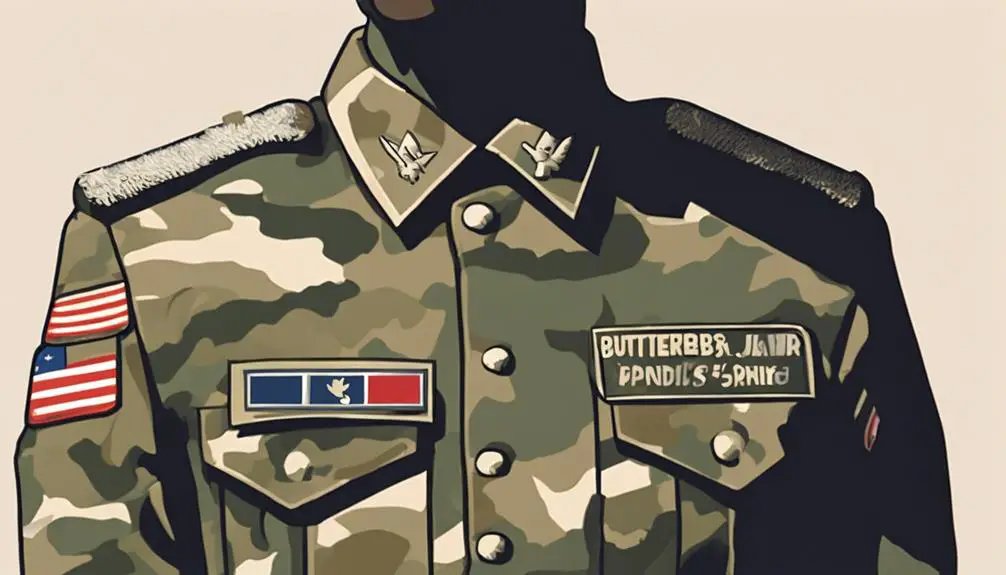
You might be surprised to find that some military slang terms, like 'butterbar' for a second lieutenant, have become so ubiquitous that they've begun to bleed into official protocol. This blurring of lines raises interesting questions about the nature of authority and language. When informal terms become widely accepted, they can create formal address conundrums. For instance, should a superior officer be addressed as 'butterbar' or 'sir'? The answer often depends on the context and the individual's personal preferences. This ambiguity can lead to linguistic authority challenges, where the traditional chain of command is disrupted by the use of colloquialisms. As a result, you may find yourself traversing a complex web of protocol and etiquette, where the formal and informal coexist in an uneasy harmony. By examining these tensions, you can gain insight into the complex dynamics of military culture and the power of language to shape our perceptions of authority.
Evolution of Slang in Modern Warfare
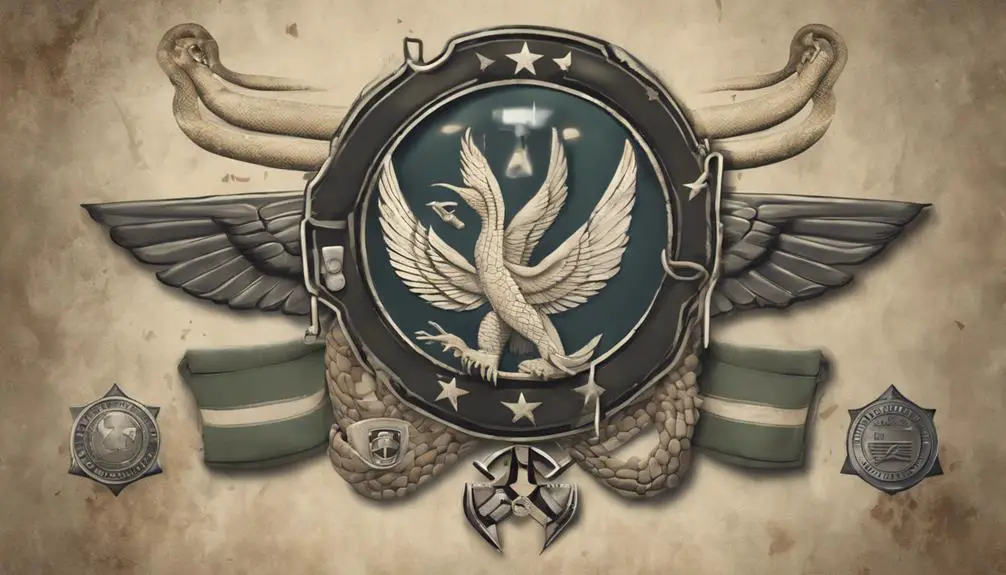
One prominent feature of modern warfare is the rapid evolution of military slang, which has been driven by the changing nature of conflict and the increasing diversity of the military personnel. You're witnessing a linguistic adaptation that's unprecedented in military history. War dialectics, the language of war, is constantly evolving to reflect the shifting realities on the ground.
As you explore further, you'll notice that military slang is no longer limited to traditional military branches. The increasing presence of civilian contractors, linguists, and cultural advisors has contributed to the creation of new slang terms. This fusion of languages and cultural backgrounds has given rise to a unique war dialect that's both essential and adaptive. The rapid evolution of military slang is a reflection of the dynamic nature of modern warfare, where linguistic adaptation is vital for effective communication and coordination. As you navigate the complex landscape of modern warfare, understanding the evolution of military slang is fundamental to grasping the nuances of war dialectics.
Unofficial Language of the Chain of Command
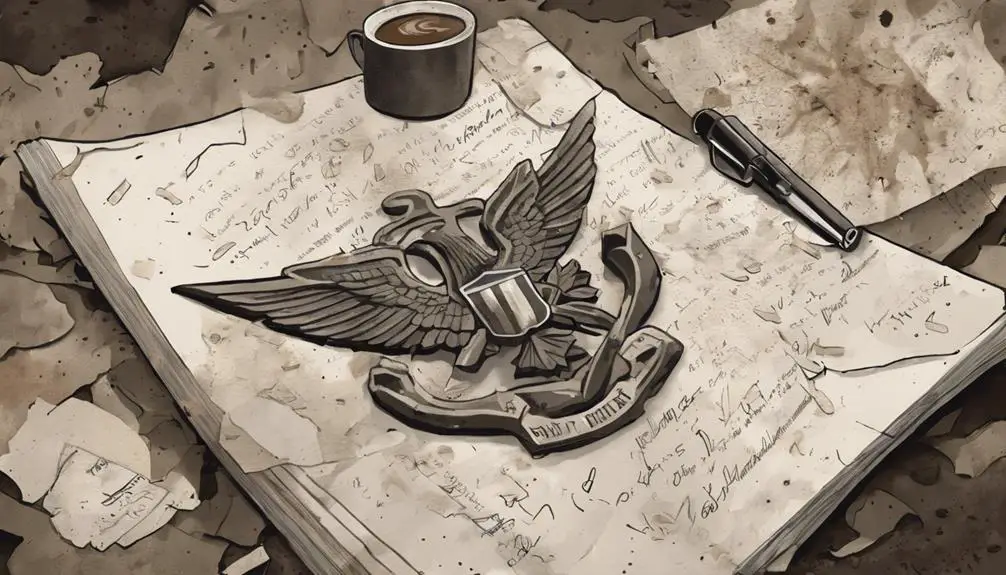
Most military personnel rely on a distinct, unofficial language when communicating with their superiors or peers within the chain of command. You're likely familiar with this phenomenon, where formal military jargon gives way to colloquialisms and slang. This unofficial language serves as an essential tool for maneuvering the complexities of military hierarchy. By adopting this language, you're able to convey nuanced information, establish camaraderie, and reinforce your military identity.
Code switching between formal and informal language allows you to adapt to different situations and audiences. When communicating with superiors, you may employ more formal language to demonstrate respect and maintain professionalism. Conversely, when interacting with peers, you may resort to slang and colloquialisms to build rapport and establish a sense of belonging.
This unofficial language is deeply ingrained in military culture, and its use is often a hallmark of military identity. By mastering this language, you're able to signal your membership within the military community, fostering a sense of unity and shared experience among personnel. As you traverse the chain of command, understanding and employing this unofficial language will become an essential aspect of your military career.
Frequently Asked Questions
Is "Lt" Used Only for Army Lieutenants or Across All Military Branches?
When you wonder if 'lt' is exclusive to army lieutenants, consider the broader scope. Across all military branches, 'lt' is indeed used to abbreviate lieutenant, showcasing cross-branch consistency. The evolution of rank-specific slang has led to this widespread adoption. It's not unique to the army; it's a standardized abbreviation applied universally, ensuring clear communication and eliminating confusion among personnel from different branches.
Can Civilians Use Military Slang Like "Lt" in Everyday Conversations?
You might wonder if using military slang like 'lt' in everyday conversations is acceptable. While it's tempting to adopt military jargon for casual use, it's crucial to bear in mind the cultural appropriation of military terminology. Using military slang without context or connection to the military community can be seen as inauthentic or even disrespectful. Proceed with caution, as misusing military terminology can lead to misunderstandings or offense.
Is "El-Tee" a Derogatory Term for a Lieutenant or a Term of Respect?
You might've heard "el-tee" used to refer to a lieutenant, but is it a term of respect or derogation? Historically, "el-tee" emerged as a colloquialism in the military, evolving from a casual pronunciation of "LT" to a widely accepted term. In modern military culture, "el-tee" is generally used as a term of respect, conveying camaraderie and familiarity. It's not inherently derogatory, but context and tone can influence its connotation.
Do All Military Officers Use Slang Terms Like "Lt" in Official Reports?
You might assume that military officers freely use slang terms like 'lt' in official reports, but that's not the case. In reality, formal tone and language are paramount in military documentation. When communicating with other branches, military jargon is often avoided to guarantee clarity. You'll rarely find colloquialisms like 'lt' in official reports, as precision and clarity are vital in military communication, especially in inter-branch correspondence.
Are There Any Other Military Ranks With Similar Slang Abbreviations?
You're curious about other military ranks with similar slang abbreviations. In military lingo, officer abbreviations are common. You'll find that captains are often referred to as "CPT" or "Capt," while majors are shortened to "MAJ." Even sergeants have their own shorthand, with "SGT" being a popular choice. These abbreviations simplify communication and are widely used in official reports and everyday conversation.

